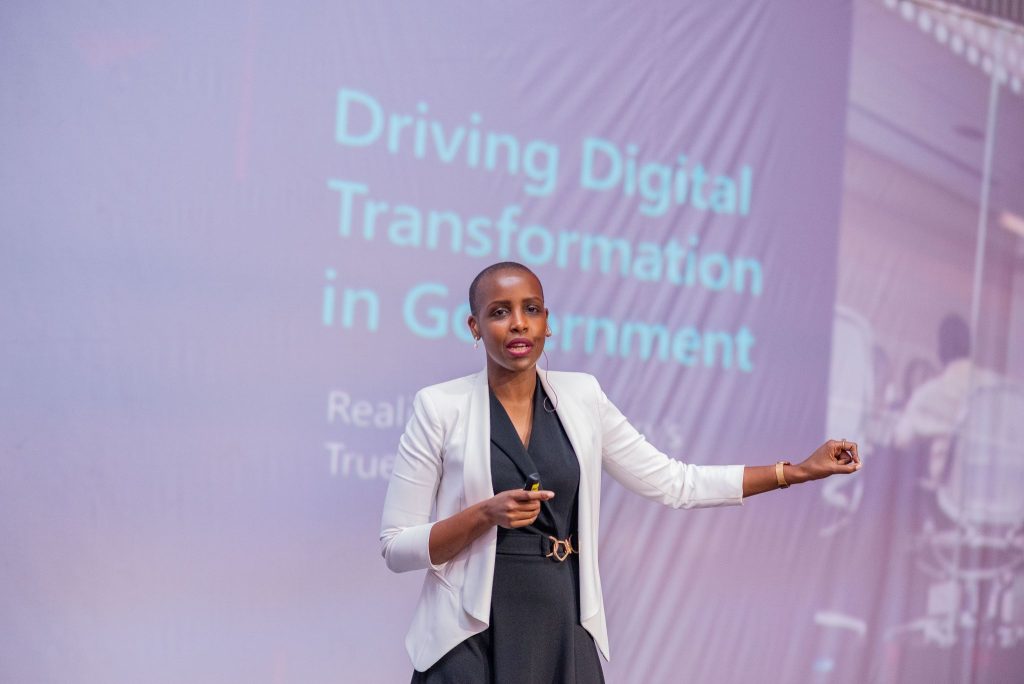|
|
|
|
|
|
in partnership
with
FLUTTERWAVE, RENSOURCE ENERGY & DAN HOLDINGS |
05.06.2020 |
|
|
|
|
|
Welcome to today’s edition of TC Daily. Please take a moment to subscribe to our newsletter if this email was forwarded to you.
Our next TechCabal Live session with Bosun Tijani, CEO, CcHub holds today at 11am (WAT). To register, click here.
|
|
|
|
|
|
|
|
|
Medplus – A wholesale & retail pharmacy that not only sells locally manufactured & imported drugs but also your everyday essentials. Now you can order your COVID-19 essentials & have it delivered to you in one click.
|
|
|
|
|
SEXUAL HARASSMENT IN NIGERIA’S TECH ECOSYSTEM
|
|
|
Nigeria’s tech community is having a serious conversation on sexual harassment within the industry. It was spurred by an allegation from Kelechi Udoagwu, an alumna of the MEST training programme, against Kendall Ananyi, co-founder and CEO of Tizeti, the internet service provider. On a bright
afternoon during the training programme, Udoagwu narrated, Ananyi sexually exposed himself to her. “[B]egging me for anything I could do,” she wrote in a Twitter thread.
Nothing happened, but she never reported the incident. In the evening after the incident, two close friends, both of them males, comforted her and told her “everything will be alright.” While this may appear vague, and even infuriating to some people, it is a loaded statement. Implicit in it is the recognition of Ananyi’s power and influence in the tech community; a man who felt entitled willing to abuse his access and privileges to exploit
women.
Ananyi hasn’t denied the allegations and has since locked his Twitter account.
Coming at a time when the entire country is grappling with three horrid cases of rape, the allegations against Ananyi has cast a chill over Nigeria’s nascent tech community. As a male-dominated industry, perhaps we should have
understood that something like this was likely.
In industries where men are the “traditional” gatekeepers, women tend to be excluded, marginalised or exploited should they try to get in or advance their careers. In Nigeria, sexual harassment is pervasive in industries such as entertainment, government, banking, education – all of which are male-dominated.
Interestingly, the tech industry is an agglomeration of professionals from all of these sectors and then some. Available data have been warning us that the Nigerian tech community may be one industry where gatekeepers have excluded and or exploited women.
Women in Tech, a report by TechCabal, showed 55.6% of Nigerian female founders say they face gender-related challenges in the industry. Only 33% of the senior management positions in tech and media are occupied by women. In 2016, the ratio of male to female developers in the country was 9:1. And across Africa, only 9% of African female-led startups received funding between 2012 and 2017.
Together, these stats show that women struggle to get access and opportunities; a reality their male counterparts rarely encounter. This exposes them to obnoxious male characters who may try to exploit their situation.
“From our findings,” the report noted, “the [Nigerian] tech community is a male-dominated space and pursuing a career in the field of technology is stereotyped to be meant for only men.”
As a leader in the tech community, Ananyi is a gatekeeper; just another male gatekeeper making it difficult for
women to make progress. Although his company, Tizeti, has issued a statement and is currently investigating Udoagwu’s allegation, Ananyi is yet to resign. His continued stay as CEO may influence the outcome of that investigation, possibly making it a waste of time.
Regardless, this is an important time for introspection, especially among male tech leaders. Victims of sexual harassment should not always speak up first. 65% of women studying STEM-related courses are doing so because of their passion. This passion will only last if there are tech companies with the right atmosphere for women.
|
|
|
|
|
|
|
Sticitt, a South African payments company has raised 3 million rands ($176,000) from Crucis VC to support the deployment of new products. The company recently rolled out the Sticitt Terminal app that allows merchants to accept contactless payment such as tap or scan-to-pay. The new funding will cover operational expenses of marketing the new products.
|
|
|
|
|
|
|
Applications are open to African startups for the K-Startup Grand Challenge, an accelerator programme organised by the government of South Korea. 60 teams will join the three months programme and receive industry support and funding of up to $120,000 for the top five startups. Click here to apply.
|
|
|
|
|
|
|
|
|
|
|
Tired of giving excuses?
Get Keepwork – a compact and lightweight rechargeable power system with lithium batteries that charge your devices for up to 40 continuous hours.
|
|
|
|
|
|
|
In Zimbabwe, control measures on foreign exchange have entered a new phase, TechZim reported. “Each bank customer shall make not more than two transactions per day,” the country’s banking regulatory, the Reserve Bank of Zimbabwe, wrote in a notice. Customers need approval from their banks if they need to make more transactions. The country’s Financial Intelligence Unit (FIU) believes many have been engaging in “illicit parallel market transactions” using
their bank accounts. It is now “adopting strict enforcement measures” to halt this. This is the latest drama by the government in its attempt to maintain a struggling foreign exchange rate. Last month, the government called EcoCash, Zimbabwe’s biggest mobile money service, a ponzi scheme. It accused EcoCash’s agents of involvement in black market currency dealings.
|
|
|
|
|
|
|
On June 12, StartupSouth will hold a webinar on “Opportunities in Africa’s emerging digital economy,” featuring an all-female panel led by Adia Sowho, VP of Growth at Migo. Panellists will extend the conversation on the role of broadband in economic/development, highlight trends, opportunities, challenges and explore solutions for a prosperous digital Africa. The session will be streamed live on Facebook, YouTube and Twitter. To register, click here.
|
|
|
|
|
|
|
|
|
|
|
Download Telechat – a privacy focused and Blockchain enabled social messaging and payments application with an integrated wallet called Coins App that allows users to stay connected with loved ones and make payments worldwide.
|
|
|
|
|
|
|
Nigeria’s young population could spur the growth of the internet in the country. In my article, I write that 82 million Nigerians are below the age of 15. Over the next ten years, these digital natives will grow up and harness tech services that are accessible to them. Ecommerce, digital payments, streaming services and eLearning could witness significant adoption during this period. But while the population of this
age group represents new opportunities, Nigeria’s underperforming economy poses a challenge. If jobs become more scarce and income levels continue to fall, it could widen the country’s digital
divide and exclude digital natives from benefits of the internet.
|
|
|
|
|
|
|
Today, June 5, TechCabal will host an engaging conversation with Bosun Tijani, co-founder and CEO of Co-creation Hub. We will discuss the role of ecosystem building in achieving a resilient African tech economy.
Tijani has over a decade’s experience mediating and propelling innovative growth within Africa by helping launch and scale startups. Whether its hosting innovation hackathons in Lagos and Nairobi or powering design in Kigali, ‘CcHub’ has led in defining the face of African tech, with a huge role in policy development as well.
We’ll learn more about what they have in store especially for a world redefined by a
pandemic. Register for today’s session here.
|
|
|
|
|
|
|
|
|
We’ll be back next.
– Abubakar
|
|
|
|
|
Share TC Daily with your friends!
|
|
|
|
|
|
|
Copyright © 2020 Big Cabal Media,
All rights reserved.
You are receiving this email because
you signed up on TechCabal.com
Our mailing address is:
Big Cabal Media
18, Nnobi Street, Animashaun, Surulere, Lagos
Surulere 100001
Nigeria
Add us to your address book
Want to change how you receive these emails? You can
|
|
|
|
|






